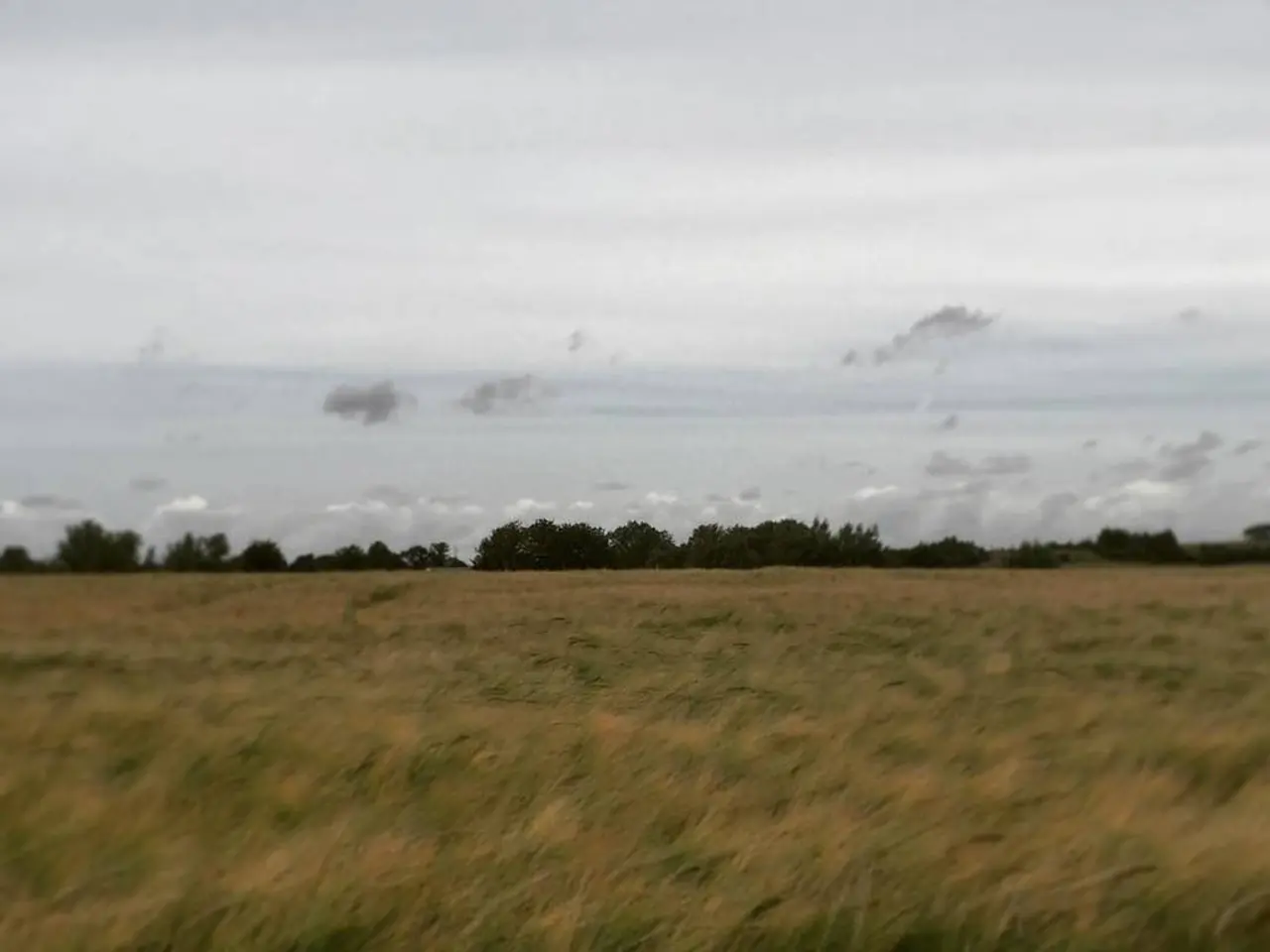Portugal grapples with three substantial wildfires amidst intense summer heat
In the Mediterranean region, a series of devastating wildfires have been ravaging countries such as Portugal, Spain, Turkey, and Greece, with 2025 marking a particularly challenging year. Over 200,000 hectares have burned in the European Union, more than double the average burned area of the past two decades, highlighting the intensifying impact of climate change[1][2][3].
The fires have been fuelled by extreme heat, drought, and strong winds, making them harder to control with existing firefighting methods. In Portugal, for instance, over 1,300 firefighters are battling three wildfires in central and northern regions, with the largest in Arouca having been raging since Monday[1][2]. As a result, several dozen villagers have been evacuated from their homes, and the scenic trails of Passadicos do Paiva, a popular tourist attraction, have been closed due to the fire.
Rafael Soares, a resident of the village of Canelas, expressed his desperation to see the fires extinguished and the need for help and air support. He blamed the fires on droughts linked to climate change[1]. Similarly, Turkey has suffered dozens of wildfires in recent weeks as temperatures have soared. Last week, 10 firefighters were killed in a wildfire in Turkey's central Eskisehir province[1].
Spain sent several waterbombing aircraft to help control the wildfires in Castile and Leon, where three fires are raging, with the most severe one near Avila. Elsewhere, several villages in Greece were evacuated, and five people were injured in separate wildfires over the weekend[1].
The fires have disrupted transportation systems, with airport closures and halted train traffic reported. The town of Mombeltran, for example, has been ordered for residents to remain indoors due to smoke from the wildfires.
Climate change is destabilizing the Mediterranean climate, making forest regeneration harder and potentially creating a feedback loop where newly regrown vegetation is more prone to burning. The term "extreme wildfire" is now used to describe fires that escape normal containment and are increasingly frequent in the region[1][2][3].
Fire management in some Mediterranean countries, such as Greece, suffers from institutional weaknesses in prevention and response, making coping with the increasing scale and intensity of fires more difficult. Firefighting efforts often involve local volunteers and fire services struggling to control these large and unpredictable fires. There is a recognized need for shifting from mostly reactive firefighting to proactive preparedness and improved forest management strategies to reduce vulnerability[1][2].
In conclusion, the 2025 wildfire season reflects a "new normal" of larger, more damaging fires demanding enhanced regional cooperation and stronger fire management policies[1][2][3]. As the fight against these destructive wildfires continues, the need for urgent action to address climate change and improve fire prevention and response remains critical.
References:
[1] European Forest Institute (EFI). (2025). Mediterranean wildfires: Climate change, forestry, and policy implications. [Online]. Available: https://www.efi.int/publications/medi-wildfires-climate-change-forestry-and-policy-implications
[2] European Commission. (2025). Wildfires in the Mediterranean: Addressing the challenges of climate change. [Online]. Available: https://ec.europa.eu/environment/forests/pdf/wildfires_mediterranean.pdf
[3] United Nations Economic Commission for Europe (UNECE). (2025). Wildfires in the Mediterranean: A call for action. [Online]. Available: https://www.unece.org/index.php?id=55745&no_cache=1&tx_ttnews%5Btt_news%5D=9448&cHash=1816a291b3
- The wildfires in the Mediterranean region, particularly in 2025, underscore the role that climate change plays in fueling environmental-science disasters, such as extreme weather events like wildfires.
- As extreme weather events like wildfires in the Mediterranean region, such as those experienced in 2025, become more frequent and devastating, the need for proactive measures in forest management and improved firefighting strategies becomes increasingly vital to address climate-change impacts.








